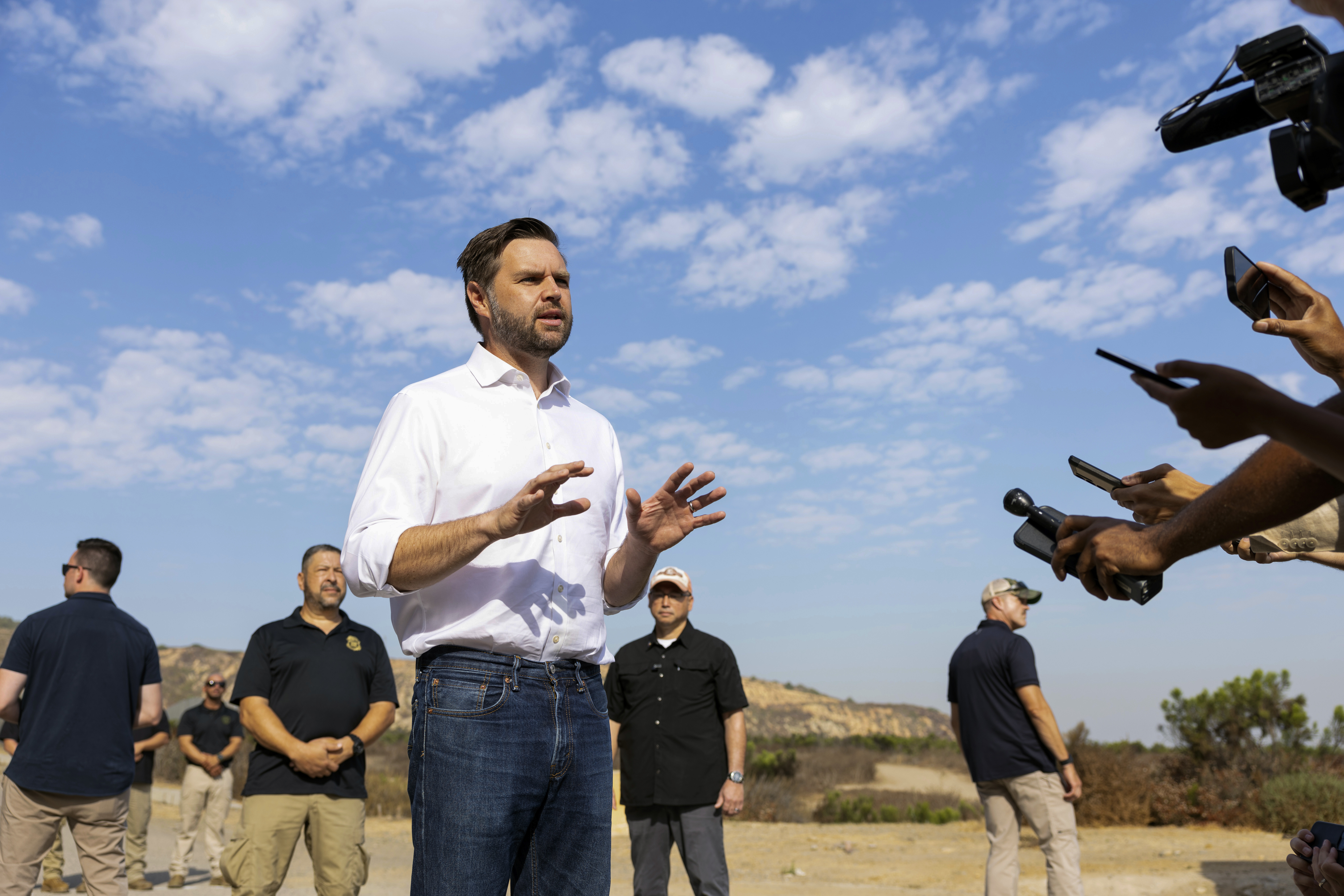Vance’s Approach to Media Shifts
He served as Trump’s policy advisor to crucial voting groups. Now, he is igniting speculation that Haitian immigrants in Ohio are consuming cats and dogs.

However, Vance's and Trump’s strategies recently faced criticism due to their claims about Haitian immigrants in Springfield, Ohio, supposedly eating pets, a narrative that has distracted from important campaign focuses such as the economy and Harris herself.
“They need to get their heads out of their asses and get dead-set focused on the swing voters,” emphasized GOP strategist Ryan Horn. “And stop paying attention to what their base is saying online.”
While some Republicans support these pet-eating accusations, others are urging Trump's advisors to prioritize discussions on inflation, border security, and Harris’s policy record—key topics believed to be vital for a November victory.
A GOP Senate aide commented, highlighting the risk of these controversial claims, “It undercuts our message, certainly.”
The election race is tightening with less than two months to go, spotlighting battleground states. Trump, who tends to depart from his prepared speeches, relies heavily on Vance to communicate the campaign’s primary messages, often engaging exclusively with conservative media.
Vance's media engagement is crafted to attract central voters and distinguish Trump’s campaign approach from that of Harris. Even though Vance has remained vocal about important issues like the border and the economy, the focus has shifted somewhat due to these pet-eating claims.
GOP Rep. John Duarte and Rep. Mike Lawler also voiced concerns about these distractions from pressing matters like economic struggles faced by working families.
Despite criticism, Vance has doubled down on the claims, citing videos and police recordings as proof of his arguments. He continues to highlight his stance on platforms like X, defending the relevance of the issues in Springfield to potential voters.
Trump recently stated plans for mass deportations from Springfield at a California press conference, further fueling the controversy which Vance’s team insists is tied to Harris’s immigration policies.
Vance spokesperson William Martin defended their focus, explaining the broader impact of immigration issues on local economies and community health in Springfield.
Prior to these recent controversies, GOP strategists praised Vance’s focused and courageous approach to media engagements. His proactive stance even led him to engage with previously hostile audiences, like firefighters in Boston.
Elsewhere, Harris has kept a lower profile in the media, only recently posting detailed policy positions on her campaign website following disappointing polls. Democratic strategist Doug Herman suggested that more frequent media appearances could be advantageous for Harris and her running mate, reducing the pressure of individual interviews.
Walz, another Democratic figure, has adopted a more cautious media approach but has started to engage more actively in new interviews across key states, though these appearances have been somewhat non-revealing.
The approach of focusing on everyday economic concerns and broader voter interests is still advised by some GOP strategists as essential for the upcoming election, hoping to shift the campaign rhetoric back to substantial policy debates.As the political landscape evolves ahead of the November elections, the need for candidates to connect with voters is more crucial than ever. GOP strategists argue that the current focus on controversial claims risks alienating undecided voters who are primarily concerned about economic stability and quality of life issues.
Vance is set to continue his media presence, participating in more interviews and discussions to highlight what he perceives as the urgent need for immigration reform and border security. His camp maintains that these topics resonate with voters who feel the impact of these issues in their daily lives, particularly in areas like Springfield that have seen recent demographic shifts.
At the same time, Harris's campaign faces pressure to ramp up its visibility and effectively communicate her policies. The Vice President has been cautious about media engagements, a strategy that may be costing her valuable opportunities to connect with the electorate. As polling indicates a growing desire among voters to learn more about her, her advisors may need to reconsider their approach to engage with potential supporters better.
In the wake of deteriorating polling numbers, some Democratic strategists are advocating for Harris and other party figures to adopt a more aggressive media strategy that places them squarely in the public eye. This could involve a series of town halls, interviews, and open forums that allow voters to interact directly with the candidates, enhancing their relatability and addressing pressing concerns.
While Harris is preparing to speak at an upcoming event hosted by the National Association of Black Journalists, critics point out that her overall engagement in the media has been limited, especially compared to her opponents. They argue that a more regular interaction with the press could mitigate some of the concerns about her visibility and responsiveness to voter inquiries.
Moreover, the political landscape is fraught with distractions and misinformation that can muddy critical conversations about policy and governance. As the deadline for the election looms, both camps are under pressure to streamline their messages and clarify their positions on key issues such as inflation, healthcare, education, and immigration.
Democratic insiders suggest that bringing forth real, relatable stories about how policy decisions impact everyday lives could help Harris connect with voters who feel disconnected from her message. Meanwhile, Republicans continue to push narratives that align with their concerns, even as some party members express the need for a more fact-based approach to campaigning.
Ultimately, as both sides navigate this charged political environment, the ability to focus on empowering narratives and substantive discussions will likely influence voter sentiment in the lead-up to Election Day. For Vance and Harris, the challenge remains not just to energize their bases but to reach beyond traditional lines to attract undecided voters crucial for victory. With the stakes higher than ever, emphasizing core issues rather than sensational claims could be the key to swaying public opinion in this fiercely competitive landscape.
Jessica Kline for TROIB News












